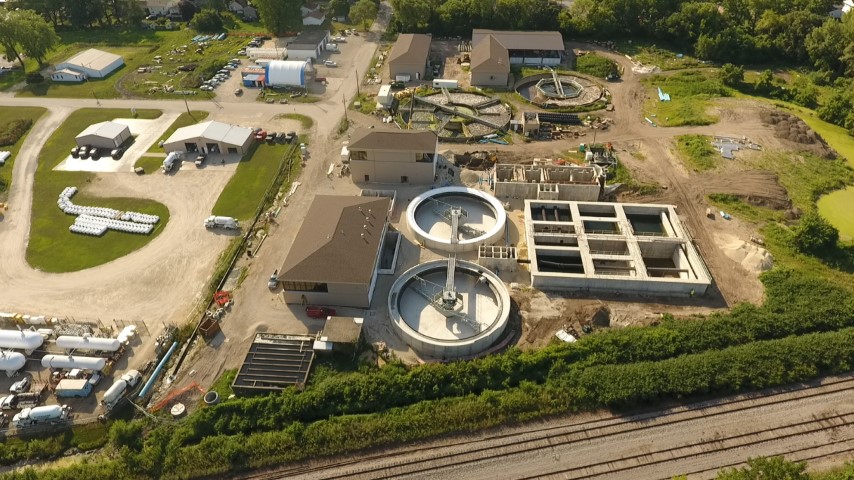Understanding and meeting municipal wastewater effluent standards
Understanding and meeting municipal wastewater effluent standards will improve the quality and sustainability of your community, and it is not a challenge you have to meet on your own. Municipalities representing a wide range of sizes, densities and resources have met these standards. With the right partner to guide you through the process - and help you discover funding opportunities along the way - your municipality can enjoy similar success.
South Beloit: A case study in wastewater treatment
The City of South Beloit in Winnebago County, Illinois, required Wastewater Treatment Plant improvements to meet regulatory requirements set by the Illinois Environmental Protection Agency (IEPA). By partnering with a specialist, the City realized a variety of environmental, efficiency and productivity benefits that included:
- Procurement of a $35.7 million IEPA Water Pollution Control Loan.
- Preparation of preliminary and final design, permitting and bidding assistance.
- Complete construction administration and observation.
- Production of process improvements:
- Higher quality effluent compliant with IEPA nutrient removal requirements.
- Improved Class A solids residual quality for agricultural uses.
- A 33% increase in treatment capacity.
- A 15% reduction in electrical energy consumption.
How did they do it? Civic leaders partnered with an experienced specialist who worked alongside them throughout the overhaul. South Beloit's success story is one you can repeat if you leverage the financial and expert support available to your municipality.
What are municipal wastewater effluent standards?
Municipal wastewater effluent standards represent best practices in delivering healthy, sustainable, technology-based solutions for pollution reduction. As endorsed by the U.S. Environmental Protection Agency (EPA), these standards represent attainable goals for supply populations with waste treatment facilities. Pollutants that need to be controlled, along with acceptable levels of their presence, are established by the Clean Water Act and have been recognized across industries since the 1970s.
The EPA has designated three key pollutant categories: Conventional, nonconventional and priority. The following table provides examples of pollutants from each category.
| Types of pollutants | ||
| Conventional | Nonconventional | Priority |
|
|
|
To meet EPA standards, operators must limit specified pollutants to a unique numeric range according to a facility's designated level of control. Six different levels of control established by the EPA are:
- Best Practicable Control Technology Currently Available (BPT).
- Best Conventional Pollutant Control Technology (BCT).
- Best Available Technology Economically Achievable (BAT).
- New Source Performance Standards (NSPS).
- Pretreatment Standards for New Sources (PSNS).
- Pretreatment Standards for Existing Sources (PSES).
Each of these designations expresses unique regulatory requirements that include appropriate technological standards, timeframes, cost reasonableness and facility age.
Navigating this complicated matrix of standards, not to mention National Pretreatment Program requirements, can become a time- and resource-consuming exercise for civic managers with a range of responsibilities. Partnering with an expert in the field can help ensure wastewater treatment projects are not only successful but cost-effective and efficient.
How to achieve compliance
The effluent standards rooted in the EPA's legislation guides communities to promote healthy and sustainable living. Every municipal leader must ensure the infrastructure that serves their community meets these best practices to protect the families they serve. Violation of municipal wastewater effluent standards set by the EPA also can result in civil or criminal legal consequences.
To help municipalities meet wastewater effluent standards, federal and state funds are available for upgrading wastewater systems. Grants, low-interest loans, bonds and other special finance programs can help with the cost of scoping studies, project management, equipment and construction. These grants and other forms of assistance enable community leaders to effect significant community improvements, but it can be difficult and complex to navigate access to this funding.
Achieving success at the scale of the South Beloit overhaul requires more than just an effective execution of funding applications. It takes an expert who understands wastewater effluent standards, infrastructure requirements and community needs.
To make sure your community is protected effectively and efficiently with the latest technologies, you need to find a municipal wastewater partner that understands your goals.
Consult a municipal wastewater effluent standards expert
At Fehr Graham, we have helped municipal leaders improve their communities' living standards since the 1970s. Our expertise in guiding clients through the process of funding and implementing infrastructure and environmental solutions spans almost every municipal concern. With our assistance, you'll gain a thorough understanding of all aspects of your project, including:
- Project scope.
- Regulatory requirements.
- Available funding sources.
Your community deserves municipal wastewater effluent standards that deliver a healthy, sustainable lifestyle. With the right guidance and advice, you can implement a state-of-the-art solution that meets your budget requirements.
Fehr Graham offers premier engineering, environmental and funding solutions services to ensure your community meets municipal wastewater effluent standards. Contact us to learn more about our services, or give us a call at 815.394.4700.



 Mick Gronewold is a Professional Engineer who enjoys helping clients find solutions to their toughest problems, even when they reach beyond engineering. He digs deep into issues and is passionate about helping find solutions. As one of the firm’s owners, Mick specializes in leading engineering and environmental projects in the private and public sectors. He takes on high-level project management and ensures scope, schedule and budget goals are consistently met.
Mick Gronewold is a Professional Engineer who enjoys helping clients find solutions to their toughest problems, even when they reach beyond engineering. He digs deep into issues and is passionate about helping find solutions. As one of the firm’s owners, Mick specializes in leading engineering and environmental projects in the private and public sectors. He takes on high-level project management and ensures scope, schedule and budget goals are consistently met.